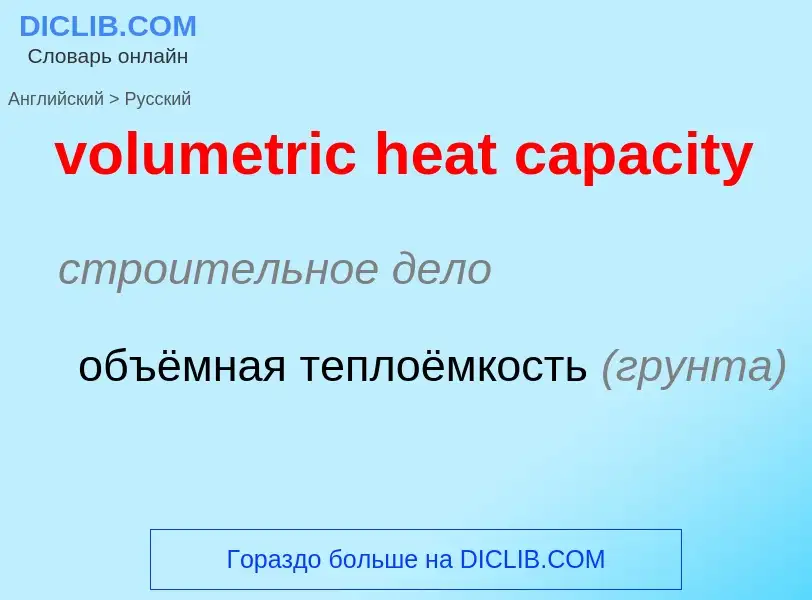Vertaling en analyse van woorden door kunstmatige intelligentie ChatGPT
Op deze pagina kunt u een gedetailleerde analyse krijgen van een woord of zin, geproduceerd met behulp van de beste kunstmatige intelligentietechnologie tot nu toe:
- hoe het woord wordt gebruikt
- gebruiksfrequentie
- het wordt vaker gebruikt in mondelinge of schriftelijke toespraken
- opties voor woordvertaling
- Gebruiksvoorbeelden (meerdere zinnen met vertaling)
- etymologie
volumetric heat capacity - vertaling naar russisch
строительное дело
объёмная теплоёмкость (грунта)
Definitie
Wikipedia
The volumetric heat capacity of a material is the heat capacity of a sample of the substance divided by the volume of the sample. It is the amount of energy that must be added, in the form of heat, to one unit of volume of the material in order to cause an increase of one unit in its temperature. The SI unit of volumetric heat capacity is joule per kelvin per cubic meter, J⋅K−1⋅m−3.
The volumetric heat capacity can also be expressed as the specific heat capacity (heat capacity per unit of mass, in J⋅K−1⋅kg−1) times the density of the substance (in kg/L, or g/mL).
This quantity may be convenient for materials that are commonly measured by volume rather than mass, as is often the case in engineering and other technical disciplines. The volumetric heat capacity often varies with temperature, and is different for each state of matter. While the substance is undergoing a phase transition, such as melting or boiling, its volumetric heat capacity is technically infinite, because the heat goes into changing its state rather than raising its temperature.
The volumetric heat capacity of a substance, especially a gas, may be significantly higher when it is allowed to expand as it is heated (volumetric heat capacity at constant pressure) than when is heated in a closed vessel that prevents expansion (volumetric heat capacity at constant volume).
If the amount of substance is taken to be the number of moles in the sample (as is sometimes done in chemistry), one gets the molar heat capacity (whose SI unit is joule per kelvin per mole, J⋅K−1⋅mol−1).


